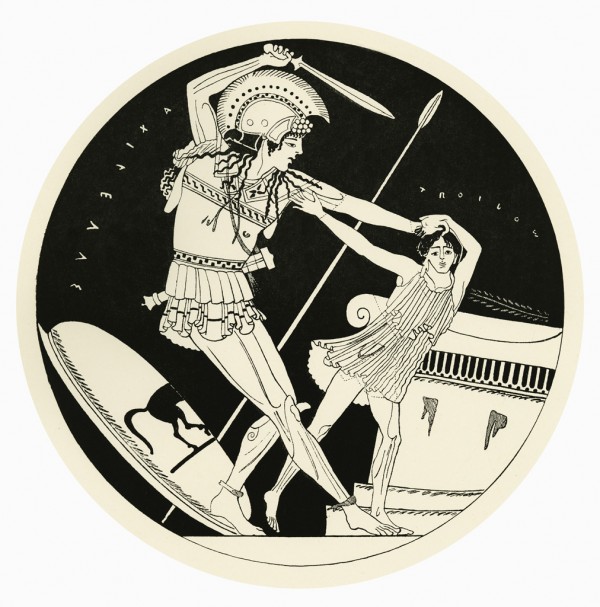I admire the Greek classics, in particular Homer’s Iliad and Odyssey. As such, I was intrigued by a Greenwich “Continuing Education” course entitled “What the Greeks Knew About PTSD.” Also, the course was being taught by a professor I respected and, as such, was very much looking forward to become reacquainted with the classics and, perhaps, gain a few insights into PTSD.
In addition to Homer, we also read two PTSD relevant plays by Sophocles: Ajax and Philoctetes. Connecting classical Greek literature to PTSD was accomplished by relating Johnathan Shay’s book entitled Achilles in Vietnam and Bryan Doerries, The Theater of War.
While I thoroughly enjoyed the classes – and do plan to carry on re-reading the Greek classics – I didn’t want class participants to become convinced that they can “understand” PTSD by a simple reading the Classics. As such, I provided the following commentary which was read to the class:
My issue with Shay/Doerries – at least how it is presented – is that there are a specific set of events that triggers PTSD. That is simply not the case. In fact, the scientific community has found that pre-conditions for PTSD (i.e. childhood trauma) may exist long before the Veteran has been exposed to combat. Combat simply wakes up these embedded traumas.
Improvised Explosive Devices or “IED’s” cause concussions and worse. Brain scans show “injured areas” of the brain that can respond to some medical treatments better than others. In milder cases, physicians and clinical phycologists often try to reprogram the brain to handle stress differently in much the same way we teach young children to develop coping mechanisms to overcome dyslexia.
I don’t wish to minimize anything that either Shay/Doerries provide Veterans. Quite the contrary. If it helps, great! Sadly, I have seen far too many cases of warriors with PTSD, which probably wouldn’t be open to this particular form of therapy.
Other approaches and solutions are needed. In other words, there is no silver bullet or specific causal relationship between combat and PTSD that can be clearly identified, let alone understood. Multiple factors are at work, which makes therapy so complicated.
Treating PTSD is not an exact science and there are no easy solutions. I suspect that the Greeks discovered that for themselves.
Having knowledge about the symptoms of PTSD is very much different than treating PTSD. Sadly, the VA will often provide a cocktail of prescription drugs which helps Veterans cope with the awful symptoms of PTSD but offer very little in the way of a long-term cure – if indeed, that actually exists.
The consequences of this debilitating injury to the Veteran, his loved ones and society is considerable. Our Veterans deserve our full support if they can ever expect to reclaim their lives.
With regard to PTSD, SFTT is rather pragmatic. Whatever works – and doesn’t harm the Veteran or others – is good! Personally, we wish the VA were a bit more progressive in providing Veterans access to alternative treatments and – most importantly – work with private institutions and charitable organizations to help provide Veterans with a wider variety of treatment alternatives even though expected outcomes cannot be properly evaluated at this stage.
Our brave young men and women deserve no less.
ShareAPR
2016


About the Author:
Vietnam vintage US Army officer who honors the brave men and women who serve our country.